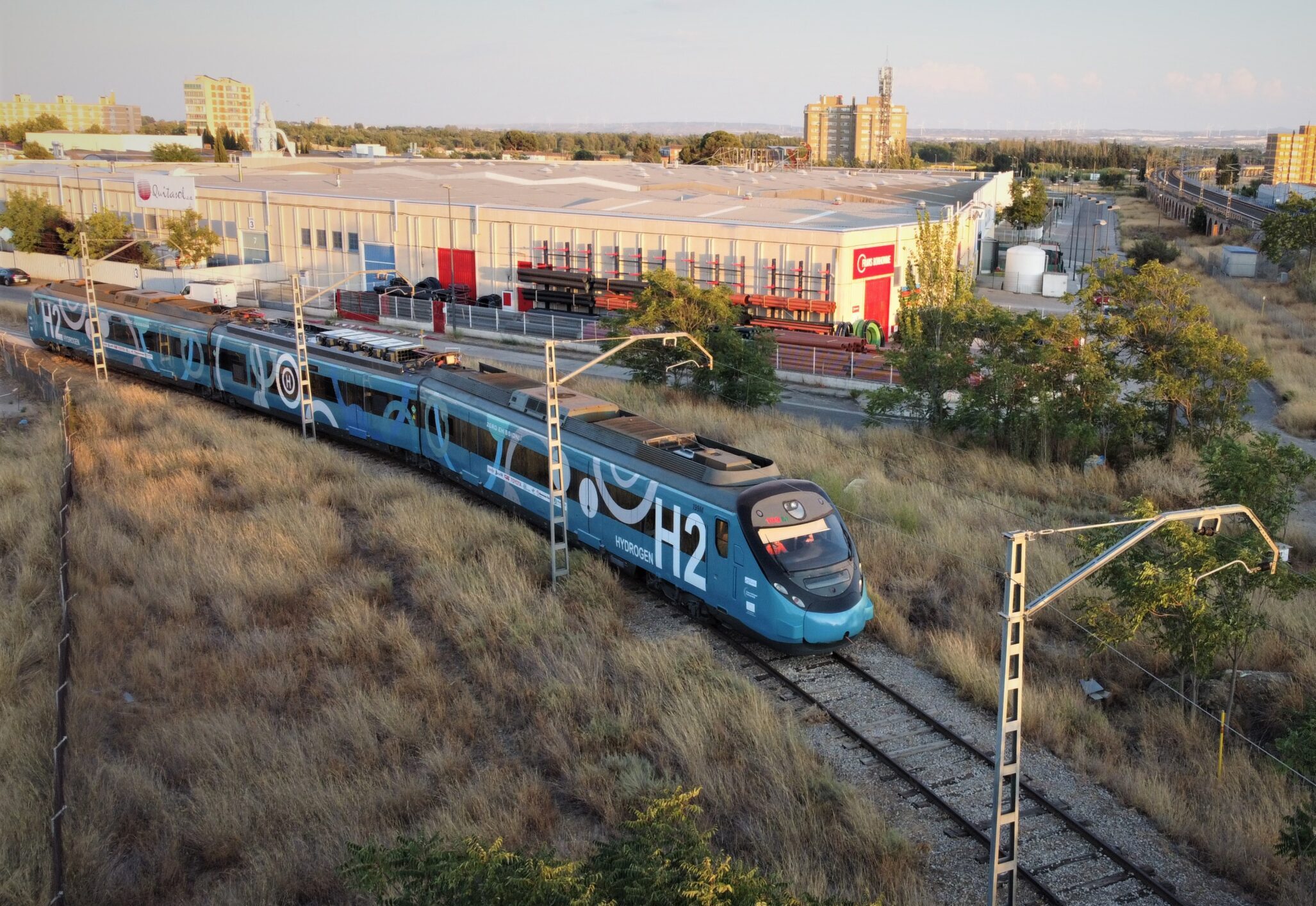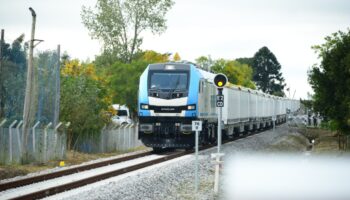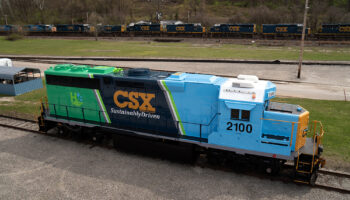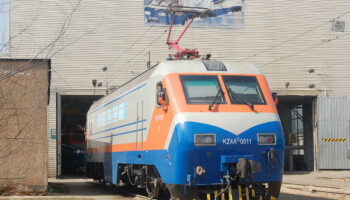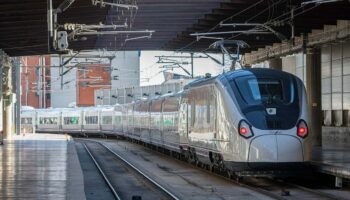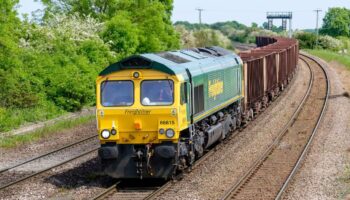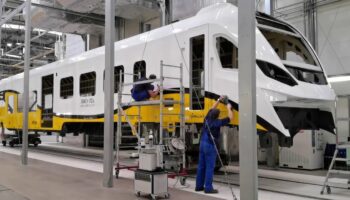Spain: First testing of Talgo’s Vittal-One hydrogen train is scheduled for this summer. Meanwhile trials of its TPH2 hybrid locomotive and CAF’s train Civia 463, which started last year, are under way.
In 2020 Talgo announced the development of the Vittal-One hydrogen trains for suburban and regional transportation based on the series of eponymous electric trains. The train is expected to reach a maximum speed of 140 km/h when powered solely by hydrogen fuel cells, and 220 km/h when powered by a catenary. The fuel cell is declared to consume 0.25 kg of hydrogen per 1 km and provide the train with a range of 800 km. The battery pack, recharged when passing through electrified sections as well as through regeneration, will provide the energy for the train to start and accelerate. The Spanish company Repsol will be responsible for hydrogen supply and refueling equipment. The cooperation agreement with the company was signed in July 2021.
Future of the Talgo Vittal-One hydrogen train. Source: Talgo/youtube
Talgo claims that hydrogen propulsion system for Vittal-One will have a module construction fitting all types of trains and diesel locomotives. Currently, for example, it is undergoing testing by Talgo in the TPH2 locomotive – a 2005 Travca electric locomotive modernised for hybrid traction (hydrogen + catenary). In late May last year, the manufacturer reported the start of dynamic tests of the train consisting of five passenger cars and a laboratory car at its factory tracks in Las Matas near Madrid. The second phase of the tests is to be carried out in the urban networks of Madrid and Extremadura. The locomotive’s operational range is reported to be 800 km with a maximum speed of 140 km/h. Remarkably, the hydrogen fuel cells and batteries are located in the interior of the trailing passenger cars as the locomotive itself has insufficient space.
Beginning of dynamic testing of the TPH2 hydrogen train by Talgo. Source: Trenvista/youtube
CAF, in its turn, is modernising a three-car Civia 463 train for hybrid traction from hydrogen system and catenary. The dynamic tests have started in July and should continue up to 2024. CAF’s FCH2RAIL project manager Fabien Bouyssou said in his November interview for Electric and Hybrid Rail Technology that tests would be under way in Spain as well as Portugal. According to him, this will be an opportunity to test the train in very different scenarios (line profile, commercial operations, climatic conditions, etc.)
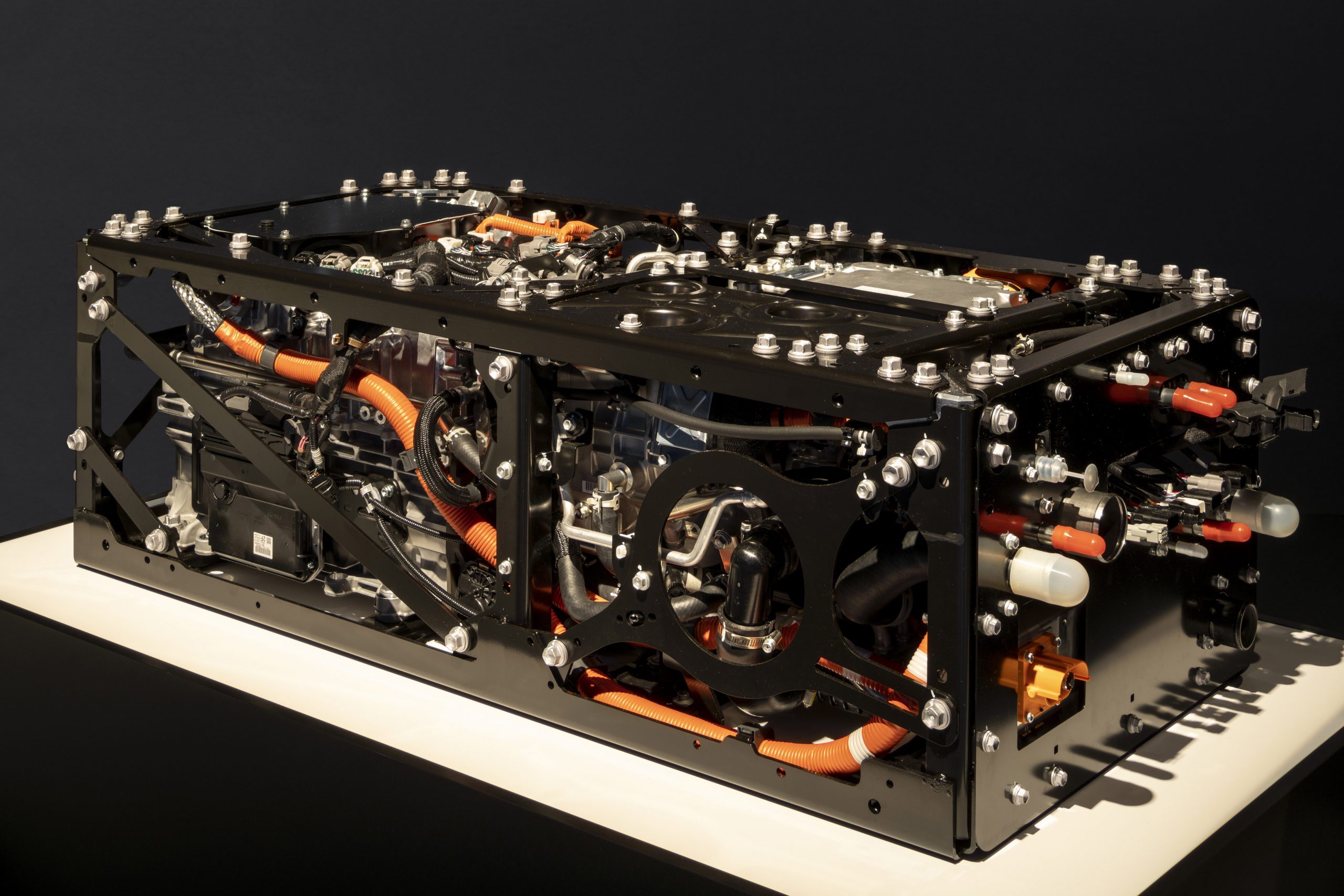 Horizontal hydrogen fuel cell module from Toyota. Source: Toyota
Horizontal hydrogen fuel cell module from Toyota. Source: Toyota
Last year Toyota supplied 6 fuel cells for the project. The Japanese manufacturer together with CAF, the Spanish national railway operator Renfe, the infrastructure company Adif and other participants are part of the FCH2Rail consortium, which implements a hydrogen traction project for regional trains. In November 2020, FCH2Rail received a €10 mln grant from the private-public EU Fuel Cells and Hydrogen Joint Undertaking Fund (FCH JU), which is to cover about 70% of the total project cost. “Green” hydrogen is supplied by the Spanish energy company Iberdrola.



